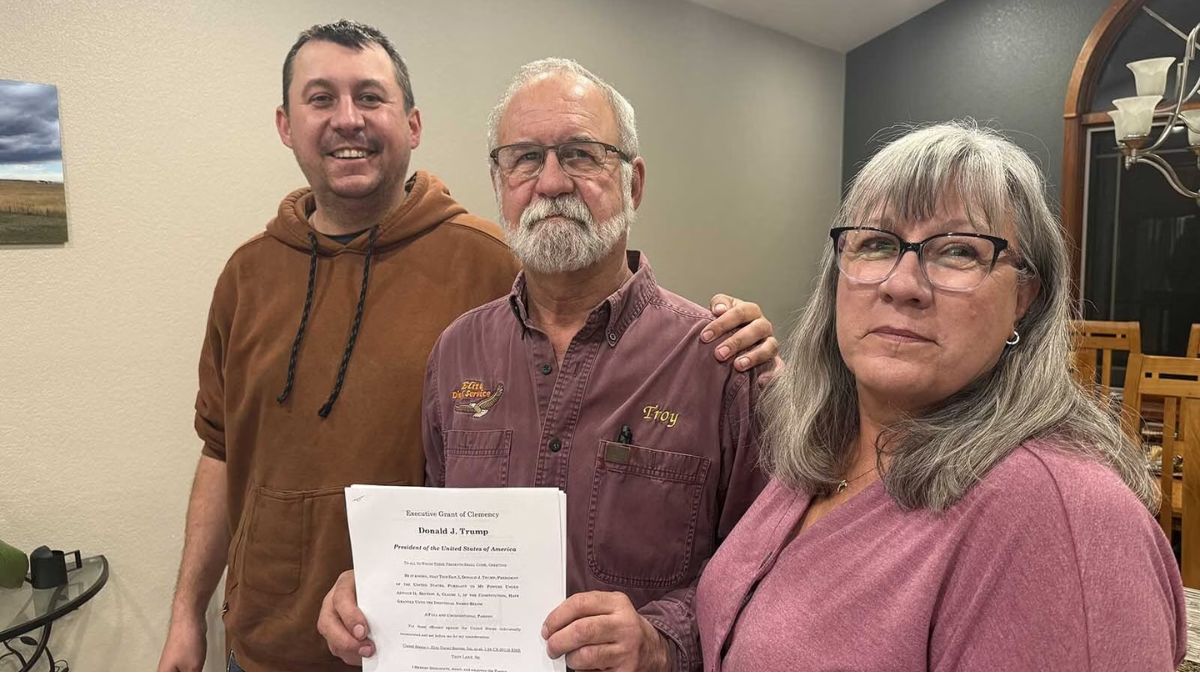In a notable act of clemency, Donald Trump issued a full and unconditional pardon to Troy Lake, a 65-year-old diesel mechanic from Wyoming.
Lake had been convicted last year for modifying and removing emissions control systems in diesel engines—an activity prohibited under the federal clean-air laws.
Details of the Conviction and Sentence
Lake operated his business, Elite Diesel Service, near Cheyenne. He was sentenced to one year in federal prison but served seven months before being placed on home confinement in September, wearing an ankle monitor. As part of his sentence, he was also fined $52,000.
Emotional Reunion on the Pardon Call
When the pardon was announced, Lake described himself as “stunned and overcome with emotion.” He recounted how he broke down crying after receiving the news from Cynthia Lummis, U.S. Senator from Wyoming.
“I don’t guess men are supposed to do that,” Lake said, reflecting on how he cried upon hearing the call.
His wife, Holly Lake, also reacted strongly. She pulled their car to the side of Interstate 25 and wept when she got the call, saying:
“These are the first tears I’ve shed over this whole thing since it all started,” she said—referring to six years of federal scrutiny after the 2018 raid on their shop by the Environmental Protection Agency (EPA).
Origins of the Legal Challenge
The trouble began when the EPA accused Troy Lake of performing “deletes”—that is, removing or bypassing pollution-control systems in diesel trucks.
The case became a rallying point in Wyoming for those who believe small-business owners are targeted by heavy federal enforcement. The raid on his shop took place in 2018, but criminal charges were only filed in 2022.
Political Support and Wider Implications
Senator Lummis championed Lake’s pardon, calling his prosecution part of what she described as the “Biden administration’s weaponization against working Americans.” Although the EPA raid happened during Trump’s presidency, the actual criminal case was brought later.
Lummis argued Lake was being punished simply for keeping diesel engines running in school buses, ambulances, and fire trucks under tough Western conditions.
She personally contacted President Trump to urge the pardon and introduced legislation aimed at de-criminalizing emissions-system modifications by diesel mechanics.
“Calling to tell him tonight that he’d been pardoned by President Trump was a truly joyous moment,” she said in a statement.
In addition, Chip Neiman, Speaker of the Wyoming House, applauded the move, expressing gratitude to Trump “for doing the right thing” and defending victims of perceived “government overreach.”
Lake’s Plans for Reform
Following his pardon, Troy Lake said he intends to become an advocate for reform. He urges industry regulators and the diesel-mechanic community to develop practical, affordable strategies to achieve emissions goals—without forcing small operators out of business.
“We need to sit down and think about a more logical way of doing it — not putting people out of work,” Lake said.
One of his supporters, political consultant Jeff Daugherty, who volunteered his time to assist the family’s case, remarked the pardon indicates “everyday people won today.”
A Long Road, A New Chapter
For the Lakes, the journey that began with a 2018 federal raid and ended with a presidential pardon in 2025 has been deeply transformative.
“We found out who our friends are,” Holly Lake reflected. “It’s unbelievable.”
The full pardon granted to Troy Lake highlights not only his personal legal journey but also broader debates around small-business regulation, emissions enforcement, and federal power.
As Lake moves forward, he aims to turn his experience into a push for reform that better balances environmental goals with the realities faced by mechanics and small operators.
This case may serve as a turning point in how emissions-control enforcement intersects with the livelihoods of workers in trades like diesel service.



